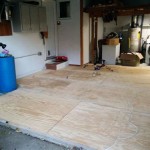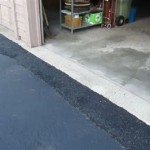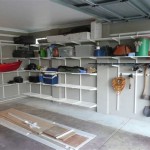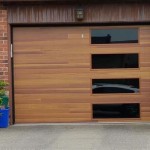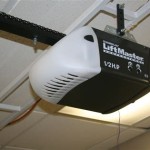Craftsman Garage Door Opener Problems In Cold Weather
Craftsman garage door openers are a common feature in many homes, providing convenience and security. However, these systems, like all mechanical devices, can experience issues, particularly when exposed to cold weather. Understanding the common problems that arise in cold temperatures and the potential causes can help homeowners troubleshoot and resolve these issues effectively, ensuring continued reliable operation throughout the winter months.
The functionality of a garage door opener relies on a complex interplay of mechanical and electrical components. Cold weather can affect each of these components differently, leading to a range of problems. Reduced lubrication efficiency, stiffened moving parts, and changes in battery performance are just some of the challenges that can surface. Accurate identification of the root cause is crucial for implementing the appropriate solution and preventing further damage to the system.
Reduced Lubrication Efficiency
Lubrication plays a critical role in the smooth operation of a garage door opener. It reduces friction between moving parts, allowing the door to open and close freely. In cold weather, lubricants can thicken, becoming less effective. This increased viscosity results in greater resistance, which can strain the motor and other components.
The type of lubricant used is a significant factor. Some lubricants are specifically formulated to withstand low temperatures without significant changes in viscosity. Others are more prone to thickening, making them unsuitable for use in regions with cold winters. It is essential to select a lubricant designed for garage door openers and rated for the expected temperature range.
The moving parts most susceptible to lubrication-related problems include the rollers, hinges, springs, and the chain or belt drive. Lack of adequate lubrication can cause these parts to bind or stick, leading to jerky movements, increased noise, and even complete failure of the opener. Regular inspection and re-application of lubricant are crucial for maintaining optimal performance in cold weather.
Proper lubrication involves cleaning the parts to remove old, hardened grease and dirt before applying a fresh coat. Using a spray lubricant is often the easiest method, but it is important to apply it evenly and sparingly. Over-lubrication can attract dirt and debris, which can negate the benefits of lubrication and even worsen the problem.
Furthermore, consider the age of the existing lubricant. Over time, lubricants can degrade and lose their effectiveness. Even if the lubricant is rated for cold temperatures, it may still need to be replaced periodically to maintain optimal performance. A general guideline is to lubricate the garage door opener at least twice a year, with more frequent application during periods of extreme cold.
Stiffened or Frozen Moving Parts
Beyond lubrication, the cold itself can directly affect the physical properties of the garage door and its components. Metal parts can contract in cold temperatures, potentially causing them to bind or stick. Plastic parts can become brittle and more prone to cracking or breaking. Water that accumulates in the mechanism can freeze, further impeding movement.
One of the most common problems is the garage door sticking to the ground due to ice or snow accumulation. Even a thin layer of ice can create significant resistance, preventing the door from opening. Clearing the area around the door's bottom edge before attempting to open it is essential. Using a blunt tool to carefully break up any ice without damaging the door is recommended.
The rollers, which guide the door along the tracks, are also vulnerable to freezing. If moisture is present, the rollers can freeze to the tracks, preventing them from moving. Warming the rollers and tracks with a hairdryer or heat gun (used cautiously) can help to thaw them and restore movement. Applying a de-icing agent to the tracks can also help prevent future freezing.
Hinges can also become stiff in cold weather, especially if they are not properly lubricated. This stiffness can put extra strain on the opener motor, potentially causing it to overheat or fail. Applying lubricant to the hinges can help to loosen them and reduce friction.
Extreme cold can also affect the garage door springs. While these springs are designed to withstand significant stress, they can become less flexible and more prone to breaking in cold temperatures. Regular inspection of the springs for signs of wear or damage is crucial, and any damaged springs should be replaced by a qualified technician.
Battery Performance Issues
Many garage door openers, especially those with battery backup functionality, rely on batteries to operate during power outages. Cold weather can significantly reduce battery performance, diminishing their capacity to hold a charge and their ability to deliver sufficient power to operate the opener.
Batteries operate through chemical reactions, and these reactions slow down in cold temperatures. This reduced activity translates to lower voltage and reduced power output. A battery that is fully charged at room temperature may only deliver a fraction of its rated capacity in freezing conditions.
The type of battery used also matters. Some battery chemistries are more resistant to cold weather effects than others. For example, lithium-ion batteries generally perform better in cold temperatures than lead-acid batteries. However, even lithium-ion batteries experience a decrease in performance in extreme cold.
To mitigate battery-related issues in cold weather, consider insulating the battery compartment to help maintain a more stable temperature. Checking the battery's voltage regularly and replacing it if it is below the recommended level is also important. Consider using a battery warmer, a device designed to keep batteries at an optimal operating temperature in cold environments. This can significantly improve battery performance and lifespan.
Another common issue is the remote control failing to operate. This can be due to weak batteries in the remote itself. Replacing the batteries in the remote with fresh ones is often the first step in troubleshooting this problem. Keeping a spare set of batteries on hand is always a good idea.
In addition to the main battery, some garage door openers have backup batteries that are designed to power the system in case of a power outage. These backup batteries are also susceptible to cold weather effects. Regular testing of the backup battery system is crucial to ensure that it will function properly when needed.
Sensor Misalignment and Obstructions
Garage door openers are equipped with safety sensors that prevent the door from closing if an obstruction is detected. These sensors typically consist of two units: one that emits a beam of light and another that receives it. If the beam is interrupted, the opener will stop the door from closing.
Cold weather can contribute to sensor misalignment. Ground heaving due to freezing and thawing cycles can shift the alignment of the sensors. Similarly, ice or snow accumulation can block the beam, preventing the sensors from working correctly. Even condensation can build up on the sensor lenses, interfering with the beam.
To address sensor-related issues, visually inspect the sensors to ensure they are properly aligned. The lenses should be clean and free of any obstructions. Use a soft cloth to wipe away any dirt, dust, or condensation. If the sensors are misaligned, carefully adjust them until the beam is properly aligned. The indicator lights on the sensors will usually provide feedback on the alignment status.
Clearing any snow or ice from around the sensors is also crucial. Even a small amount of snow or ice can be enough to block the beam. Consider installing sensor shields to protect them from the elements. These shields can help to prevent snow and ice from accumulating on the sensors.
Another potential cause of sensor problems is wiring issues. Cold weather can cause wires to become brittle and crack, leading to intermittent or complete failure. Inspect the wiring connections to the sensors to ensure they are secure and free of corrosion. If any wires are damaged, they should be replaced by a qualified technician.
In some cases, the sensors themselves may be faulty. If the sensors are not working correctly even after cleaning and realigning them, they may need to be replaced. Testing the sensors with a multimeter can help to diagnose whether they are functioning properly.
Motor Overheating and Circuit Board Malfunctions
The garage door opener motor is responsible for providing the power to open and close the door. In cold weather, the motor can be subjected to increased strain due to stiffened moving parts and thickened lubricants. This increased strain can cause the motor to overheat, potentially damaging it.
Motor overheating can also be caused by excessive use. Repeatedly attempting to open or close the door when it is stuck or obstructed can overload the motor, causing it to overheat. Allowing the motor to cool down between attempts can help to prevent this problem.
Circuit boards are the electronic brains of the garage door opener, controlling the various functions of the system. Cold weather can affect the delicate components on the circuit board, potentially causing them to malfunction. Extreme temperature fluctuations can also lead to condensation, which can corrode the circuit board and cause damage.
To protect the motor and circuit board from cold weather effects, consider insulating the garage. This can help to maintain a more stable temperature inside the garage, reducing the strain on the motor and protecting the circuit board from extreme temperature fluctuations. Regular maintenance, including lubrication and inspection of moving parts, can also help to prevent motor overheating.
If the motor is overheating, it may be necessary to replace it. Similarly, a malfunctioning circuit board may need to be replaced. These repairs should be performed by a qualified technician to ensure they are done correctly and safely.
Protecting the garage door opener from the elements is crucial for prolonging its lifespan and ensuring its reliable operation. A well-maintained garage door opener can provide years of trouble-free service, even in cold weather conditions.

How To Fix Cold Weather Garage Door Problems Quality Overhead

6 Garage Door Opener Cold Weather Problems Their Solutions Sti

5 Reasons Your Garage Door Won T Open In Cold Weather Diy Fixes

My Garage Door Won T Close When It S Cold Action

6 Garage Door Opener Cold Weather Problems Their Solutions Sti

Craftsman Chamberlain Remote Garage Door Opener Keypad Cold Weather Operation Failure Repair

How To Fix Cold Weather Garage Door Problems Quality Overhead

Craftsman Chamberlain Remote Garage Door Opener Keypad Cold Weather Operation Failure Repair

Fixing Garage Door Problems During Cold Weather Winter

Fixing Garage Door Problems During Cold Weather Winter
Related Posts


